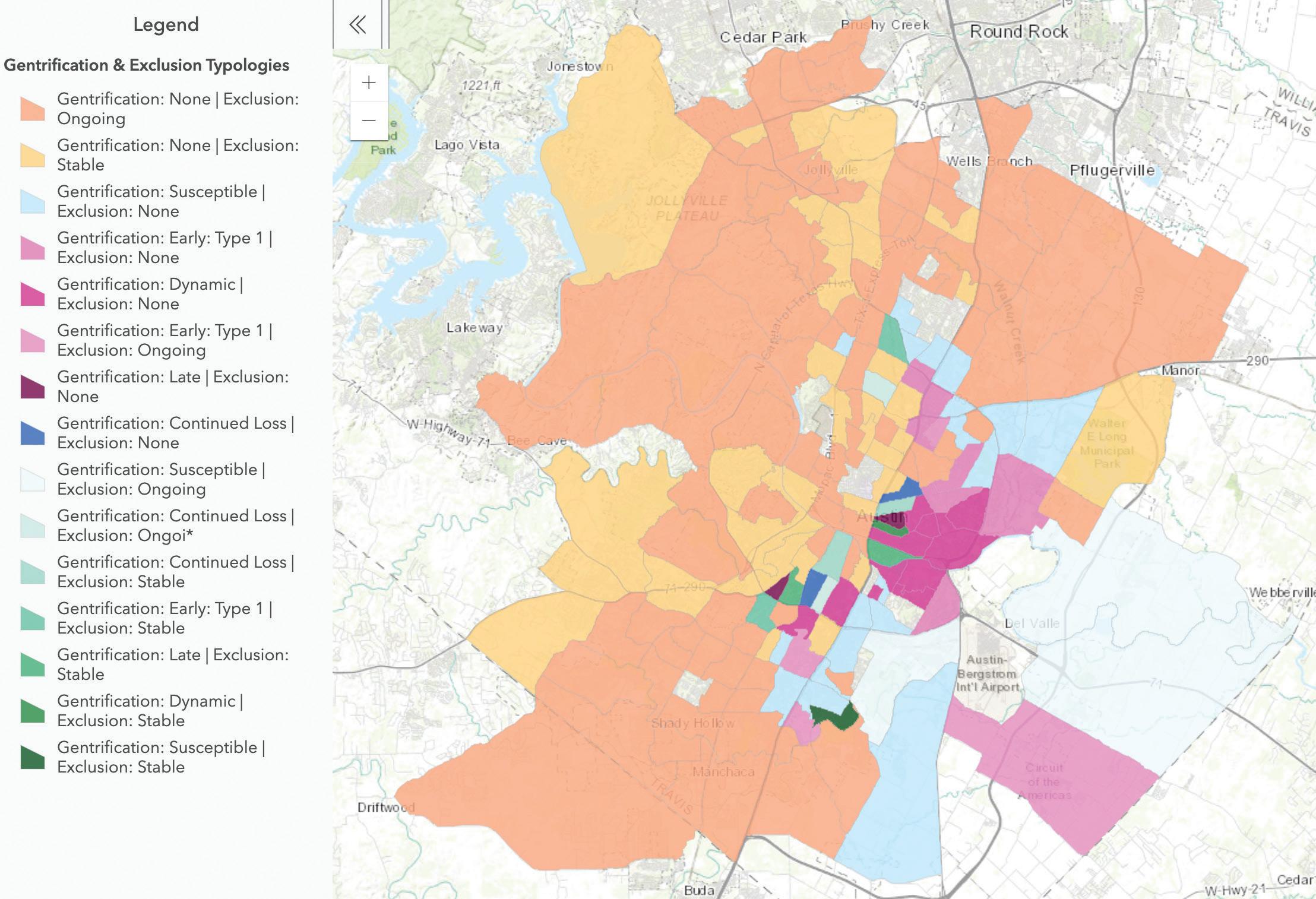
7 minute read
IMPERFECTLY PITCHED
from Sound:Tracked
by LASA Ezine
The Truth about Austin’s Musical Identity
By: Andres Basabe
Advertisement

There is no way to define Austin’s music. Well, that’s not entirely true. We know a lot about Austin’s music, its huge diversity, influence, and relevance in today’s world, but this number of variables is what makes it hard to define. There is a lot that goes on below the surface of everything musicrelated, and this is especially true in a city labeled “The live music capital of the world”.
Harold McMillan is a cultural arts administrator, presenter, producer, and performer with decades of experience across disciplines and functional areas, primarily in non-profit cultural arts organizations. He is passionate about what he does, and, through his experience, he has created his own definition of working with music is like.
“It’s an avenue for creative release, creative expression for me personally, but engaging in music professionally for me is also about the community of people that I work with, in terms of putting on shows, or working in bands, or doing that kind of thing. And I guess the thing that rounds it out, is that for me, it’s also a way of expressing and connecting to culture. More so than just entertainment.”
Whether it is from the people who make it or the people who listen to it, culture always plays a big role defining music. There are several aspects of culture that are represented in music, whether they are relatively small ones, like instruments, styles, and other motifs, and bigger ones like entire genres and representation of ideologies, history, and traditions.
“For myself, personally, music performance is not the only aspect of it. I have for years been an art culture, and cultural history and cultural preservation professional. So, for me, all of this is tied together in kind of a personal mission that I hope benefits the community because I am engaged in work that attempts to preserve traditional African American art and culture and a lot African American music in terms of keeping it visible, viable, public, and providing performance opportunities, but also providing opportunities for audiences to enjoy it. And a lot of the time, I also feel like there’s an educational mission that’s embedded in it. Because a lot of people don’t know the cultural legacy, the cultural connection to a lot of music that they listen to, and I would like for them to.”
Each and every person working in this field has their own culture.
Like McMillan, some of them consider benefiting the community as part of their values.
Clint Strait is the current owner of Strait Music company, a family-owned music shop that has been passed down for three generations. The music shop has been a staple for music in Austin for a while, as it is where most of Austin’s musicians, scholars or professionals, get their gear.
“Our business has grown a lot. We started off as just a piano dealer in the 60s and now we’re a full line music store that sells pianos, guitars, band, orchestra, pro audio, keyboards, drum sheet music, everything. So we’ve expanded and needless to say, in the last six years, the city has grown a lot, too. “ Even then, as the shop has grown, it has preserved its cultural values as it has grown, keeping the friendly local vibes over the years. Like the rest of Austin, they like to “keep it weird”, a phrase that’s commonly used to represent Austin’s uniqueness and diversity and how it needs to be preserved.
“We keep it weird, and I think just part of our company culture, and part of our vibe and everything is just very Austin.
Because, we’re Austin. That’s just kind of our deal... Keeping it weird for us just means being us, warts and all, if you will. We have a super passion for customer service. We’re not a big box store. And we just try to support our local communities through our local community through charities, and we just do us. We’re a music store... All our employees are musicians. We’re not selling insurance or working in construction… We got a lot of musicians and creative, cool people that have worked for us for a long time. And, when we hire young people, they’re typically creative people. And it’s not hard to keep it weird.”
As the owner of a company that has been representing Austin and a major part of its musical identity for years, Strait is pretty familiar with Austin’s past and present music scene.
“The music scene is cool in that Austin’s always been super welcoming. Back in the day, Austin was the place where the hippies and the Cowboys met. And what I mean by that is the hippie movement going on elsewhere, and there was the outlaw country movement. Austin was a place where both those genres met, and that’s what really made Austin alive as a capital of the world: because it was welcoming to everyone, whether you were a hippie or a cowboy”
These kinds of movements aren’t the only thing that affects Austin music, or really any music in general. Just like culture, certain events in history can influence music in very significant ways.
“A lot of the stuff that affects music has to do with social things that are going on at a time. Back in the 60s, you had the civil war in Vietnam, and that affected a lot of people’s music. It has to do a lot of things that are global. I mean, music is really influenced by a lot of things. It has to do with the political and social climate of time. Sometimes there’s weird pockets that erupt over time. Little things can just kind of go viral like the grunge scene from Seattle in the 90s with Nirvana and stuff like that just happened. It was a time and a place.” Going back to Austin-specific influences in music, McMillan is also familiar with another major factor that has a role defining Austin’s music.
“In terms of physical location, it has a lot to do with gentrification and the displacement of a lot of black and brown folks in East Austin, because for years, we saw East Austin as a quite undesirable and dangerous part of town for white folks to visit. That is not considered to be the case these days because of gentrification. Now, everybody wants to be in East Austin, so there are a lot of businesses in East Austin down there and a lot of businesses in East Austin that cater to people that want to go out and listen to music.”
Gentrification is the process in which an urban area is changed by wealthier people moving in. This improves many things that depend on money, but displaces people who live there, basically kicking them out. This process is pretty common in Austin, having several effects in the city. One of these is, of course, the placement of music businesses in new areas, expanding the influence of music within the city.
This map shows how gentrification and displacement are present in Austin. The word “Exclusion” in the legend is the same as displacement.

All of these things have affected what Austin’s music is today; however, they are not the only influences to it. McMillan also pointed out how it is still changing and evolving, and it will continue to do so as time goes on.
“The musical culture of Austin is ever evolving because, in terms of commercial music, it’s tied to what sells and what is popular… It’s pretty much always in flux because people are always coming to Austin for school and then graduating but deciding if they’re going to stay here, and that is connected to not just local, but national trends of what is going on. In music, in terms of the things that I have seen, and the long amount of time that I have been here, there is that commercial aspect of music that is tied to what’s happening nationally and globally, that keeps morphing.”
Today, as it keeps evolving, Austin’s music has kept some of its core values. Strait pointed out an important part of these values, acknowledging that its diversity and welcomingness are still among its core values.
“And now it’s cool because, in Austin… I don’t care what music you’re into, man. Metal, hip hop, country, indie, whatever. There’s a place tonight that you can go see a show in Austin, Texas, that, you can find whatever it is you’re into. That is the same today, as it was in the 70s. It’s different because the town’s grown up. It’s not as low-key anymore, but, at the same time, the welcoming nature of music, and live music, and an openness to all genres of music has not changed.”
While some of its values have remained the same over the years, today’s music scene is pretty distinct from previous ones.
Beach Blossom is an indie pop/jazz-rock band from Austin consisting of four members: Alexi Hill, Cameron McLenaghan, Peter Kishler and Curtis Glatz. As a band in the current music scene, they are pretty familiar with the modern experience of being a band as well as what goes into music today.
McLenaghan showed that the diversity in Austin’s music is still a major aspect of the whole scene.
“Austin’s known for its music, and part of that is the diversity of it. A lot of different things. There’s a lot of metal bands, there’s a lot of jazz… It’s part of a very big and diverse music scene. Sometimes you end up in little bubbles though. Like there’s venues that do mostly metal, there’s venues that do mostly indie type things or singer songwriter. So there’s a lot of different things out there, but you kind of end up playing the same places as people that play similar styles of music to you, because people go to those bars expecting a certain style of music and things like that.”
Glatz pointed out that, even though the scene is diverse, the band still fits in “I feel like we fit in. I guess, yeah, Austin’s a pretty diverse scene, but Indie Pop
Jazz Rock is one of the popular styles around and we fit in with that group in our little niche to it”
This “Indie Pop Jazz Rock” is a very common genre amongst Austin’s musicians today.
McLenaghan pointed out its origins, as well as the unofficial, proper term for the genre.
“There’s an Austin musicians Facebook group. And one time there was a member










